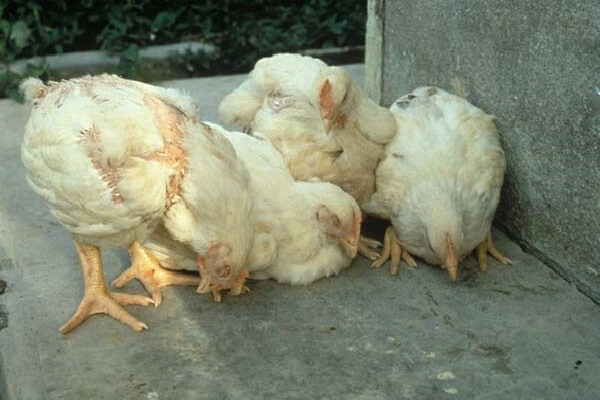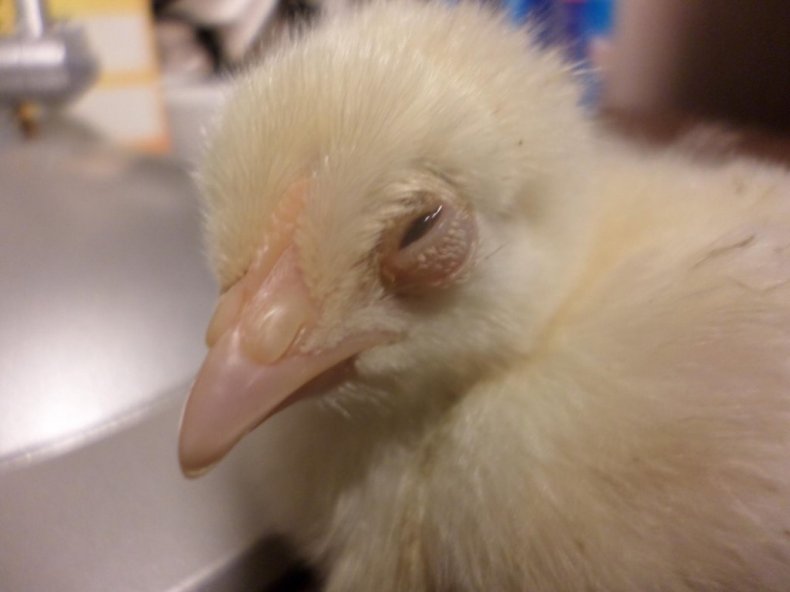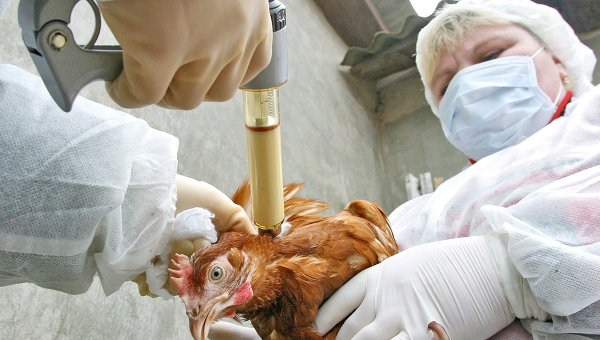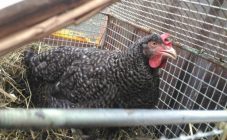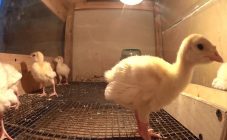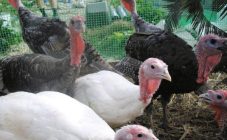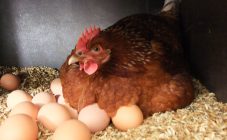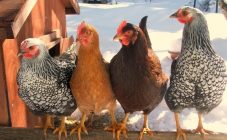This is one of the most dangerous diseases of poultry. Outbreaks of the disease sometimes occur in a wide variety of poultry holdings. This situation is always under the control of veterinary specialists. Newcastle disease in chickens requires the most careful attention to itself.
Home care rules
If there was an outbreak of the disease, it makes no sense for a person to hide its presence. This behavior will enable the disease to develop further and cause significant damage.
It is more important to determine the presence of the disease in time and take measures to treat it. There have been many outbreaks of infection in recent years. They took place in the Kemerovo, Kaluga, Ivanovo, Tver and Vladimir regions. Cases of the disease have also been reported in the North Caucasian FD, Dagestan and Altai Krai.
At home, it is necessary to follow general rules that increase the biological safety of birds.
The most important of these is chicken vaccination. After its implementation, the risk of the disease is sharply reduced. The question of its feasibility must be considered based on the magnitude of the risk of contracting Newcastle disease.
In addition, you should strive to follow the usual measures that reduce the risk of infection. It is necessary to reduce the likelihood of contact with wild birds, to carry out disinfection on time, to ensure that the birds are fed and kept in the correct way.
Newcastle disease symptoms
This disease also has several other names: Asiatic plague, pneumoencephalitis, pseudo-plague, or atypical plague.
The danger from this disease is so great that vaccination against Newcastle disease was adopted with the obligatory subsequent monitoring of its course in each chicken.
The disease can pass in different ways, depending on the specific situation, here are the symptoms of Newcastle disease in chickens:
- If the chick has not been vaccinated, the disease is acute. The entire herd usually falls ill within two or three days. At the same time, in chickens, breathing is difficult, they are usually motionless, sitting, while lowering their head down. At the same time, mucus flows from their beak. Diarrhea is also observed.
- Sometimes there is a nervous symptomatology of the disease. At the same time, the birds' neck bends and twists, they move, making unnatural movements due to impaired coordination. There is a syndrome such as partial paralysis of the wings, neck, and legs and tail. One of the signs is greenish diarrhea. In the breathing of chickens, wheezing is clearly audible.
- There is also a respiratory form. In this case, breathing is very difficult, wheezing and croaking are heard. There is symptomatic purulent conjunctivitis, the eyelids become inflamed and swell. Birds gradually die from suffocation. Such a variant of the development of the disease is also possible when it takes on a chronic form.If this occurs, the chicken mortality rate can be between 10% and 20%.
- The atypical manifestation of the disease usually occurs in large poultry farms where the virus persists for a long time in the chronic form of vaccinated birds. It can manifest itself in the fact that egg production decreases, as well as hatchability of chickens. Mild outbreaks of respiratory Newcastle disease in young birds may occur immediately after vaccination. Sometimes the eyes become inflamed, there may be a mild form of a nervous disease.
A definitive diagnosis can only be made by a veterinarian. To do this, he needs not only to conduct an examination, but also to do an autopsy of diseased birds.
How to treat a disease
Treatment of sick birds is considered impractical. This is due to the fact that Newcastle chicken disease is highly contagious and will spread to the entire herd with the slightest delay.
Usually sick birds are isolated and destroyed, and the remaining healthy chickens are vaccinated. The room where the illness took place is thoroughly vaccinated. For the period of treatment for the poultry farm, quarantine is established.
In this case, it will be prohibited:
- Take chickens out of it or import new ones.
- Sell the eggs of diseased birds.
- It is excluded in any form to carry out the sale of various poultry products. In particular, you cannot sell not only chicken meat, but also their down and feathers.
- At the same time, visiting the farm for unauthorized persons is prohibited.
During quarantine, measures are taken to combat the disease. After the final disinfection of the premises is completed, the quarantine is removed after 30 days.
Preventive measures
General biosecurity measures are commonly used to reduce the likelihood of contracting Newcastle disease.
It usually includes the following measures:
- Competent formation of the bird herd.
- Such therapy as careful observance of the necessary conditions when keeping the herd and in the process of feeding it.
- Regular implementation of broiler disinfection measures.
- Isolation from contact with wild birds.
- Other similar actions.
Here are a few situations in which the need for vaccination can be recommended:
- If there was an outbreak of Newcastle disease in the specified farm earlier.
- In cases where outbreaks have occurred in the area.
- When there are large poultry farms in the immediate vicinity. They can put you at risk of growing diseases.
In the fight against this disease, preventive measures are important, first of all. Among them, vaccination is especially effective, as well as conventional biological protection measures.
